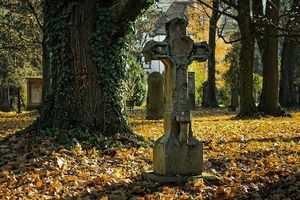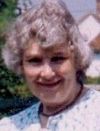Sorrowing friends and relatives had gathered to attend the funeral of young William Tennent. It was 1727 and William, a theological student of unusual ability, had been studying under the oversight of his brother Gilbert in New Brunswick, New Jersey.
But the intense study had damaged William’s health. Pains in his chest coupled with severe weight loss left his friends anxious.
In addition to his physical weakness, William was uncertain about his spiritual state, fearing that if his illness should lead to his early death he would find himself rejected by God at the last.
Last moment
Then came the day when William and Gilbert were earnestly discussing the younger man’s fears. Suddenly, William collapsed to the ground.
Lifting his emaciated brother in his arms, Gilbert carried him gently into another room and laid him down. He was pronounced dead. William’s doctor, who was also his close personal friend, had been away from home at the time, and when he returned the next day was deeply grieved at the distressing news.
Hurrying to where the body was laid out awaiting burial, he insisted on conducting a further careful examination. And he was far from satisfied with the results. He thought he could detect an unusual warmth under one of his patient’s arms, and demanded that the funeral should be delayed. Meanwhile the body was moved to a warm bed.
For three days and nights, the doctor remained by William’s body doing all in his power to discover whether indeed there was any life. On the third day the funeral party gathered once more. But still the doctor pleaded for time.
Despite the cold, stiffened limbs and sunken eyes he clung to the faint though receding hope that his friend was not dead. Gilbert could stand the strain no longer and, snapping at the young doctor, accused him of absurdity.

Just one more hour then, begged William’s friend. As the last moment ticked by there came a groan from the bed. The ‘dead’ man’s eyes flickered opened for a moment and closed again.
Vivid account
Every effort was now bent towards reviving him from his comatose state. A slow recovery followed, but it was more than a year before William regained his strength.
Everything he had previously learnt he had forgotten. He had to learn to walk again, to speak again, and to read again. On one occasion he noticed his sister looking at a book. ‘What book is that?’ he asked.
‘It is a Bible’, she replied. ‘What is a Bible?’ asked William. His sister wept as she realised that all her brother’s extensive knowledge of the Scriptures — of Hebrew, Latin and Greek, of theology — had all been wiped from his mind like chalk from a slate.
But this near-death experience was not all loss. Far from it. William was most reticent to speak of what had happened to him during the days that he had lain apparently dead.
However, years later he gave a friend a vivid account. He told him that while Gilbert and he were discussing his spiritual fears he had, in an instant, found himself in another world.
He was being guided along by a ‘superior being’ whom he was commanded to follow. He continued:
‘I was accordingly wafted along, I knew not how, till I beheld at a distance an ineffable glory, the impression of which on my mind it is impossible to communicate to mortal man. I immediately reflected on my happy change, and thought, “Well, blessed be God! I’m safe at last, not withstanding all my fears”.
‘I saw an innumerable host of happy beings surrounding the inexpressible glory, in acts of adoration and joyous worship.’
Ravishing sound
He then asked his guide for permission to join that joyful multitude. ‘No’, replied his guide gently, ‘you have to go back to the earth’. His words pierced through William’s heart like a sword.
The next moment he became aware that his brother, Gilbert and his doctor friend were arguing about something. So great was the shock of having to return to the world that William kept fainting away.
Never could he forget those things he had seen and heard: ‘Such was the effect on my mind that if it be possible for a human being to live entirely above the world and the things of it, for some time afterwards I was that person.

‘The ravishing sound of the songs and hallelujahs that I heard, and the very words uttered were not out of my ears when awake, for at least three years.’
Knowledge returns
William Tennent had been born in Armagh, in Ireland, in 1705. When his father felt he could no longer worship in accordance with the dictates of the Established Church, he emigrated to America in search of religious liberty, together with eleven-year-old William, his three brothers and sister.
The family settled first in New York and then moved to Pennsylvania, when his father was called to minister to a small congregation at Neshaminy. A man of exceptional ability, William’s father educated his four sons at home, each of them becoming proficient in the classical languages and theology.
When Gilbert, the eldest brother, entered the Christian ministry, William moved to his house to study for the ministry under Gilbert’s supervision.
Following his illness, William had to begin his education all over again. Gilbert spent many hours teaching him Latin, the biblical languages, theology and other branches of learning.
But one day as he was reciting a Latin exercise, he suddenly clasped his hand to his head as if he had felt a sudden stab of pain. Asked what was the trouble, he said that the book from which he was reciting looked suddenly familiar to him.
He was sure he had read it before. He had. Gradually his previous knowledge returned, together with clear recollections of his earlier life, all of which he had apparently forgotten.
Remarkable days
Not until 1733, five years after his illness, did William Tennent feel he was ready to be ordained and to enter the life-work for which he had been preparing.
When the death of his younger brother, John, left a congregation in Freehold, New Jersey, without a pastor, the church approached William, asking ask him to fill the vacancy. For forty-four years he faithfully served that one congregation.
These were remarkable days in the American Colonies — days of spiritual awakening when men such as Jonathan Edwards, Samuel Davies, Samuel Blair and many others were exercising ministries of unusual power.
The youthful George Whitefield was travelling the country, attracting immense crowds wherever he went. Tennent’s brief glimpse of the glory of God left an indelible mark upon him. At times he seemed heedless, indeed careless, of earthly things.
He left all the management of his affairs to a steward who farmed his lands and dealt with his finances. Soon, however, William Tennent found himself in serious debt.
Marriage
A friend assured him that the only answer to his predicament was to marry. But the embarrassed man protested that he had no idea how to go about a courtship, nor had he time for such things.
His friend had a ready answer. His sister-in-law, recently widowed and about the same age as Tennent, would make him an excellent wife. If William would accompany him to New York the following day, he would introduce him to the lady.
And so he did. William liked the look of Mrs Noble, but told her he was too busy for a courtship. He would return the following week, and if she agreed to his proposal, they would marry immediately and she would then return home with him.
Though initially nonplussed at such a strange suitor, Mrs Noble amazingly consented. She was to make Tennent an admirable wife in every respect. She cared for him, managed all his temporal affairs with efficiency, and three sons were born to them.
Power and glory
Remarkable anecdotes have survived of the power accompanying William Tennent’s preaching. Many were the tears that flowed as his hearers realised their sinfulness in the sight of God.
Nor did he measure his sermons by his watch. Sometimes he could hardly stop: but at another time a friend who had walked twenty miles to hear him preach remarked that the sermon lasted no more than thirteen minutes.
And always the shadow of the glory of God rested on him, sometimes overwhelming him to such an extent that he had to be helped into the pulpit. Under his ministry the congregation at Freehold increased both numerically and in spiritual maturity.
In 1777, when he was 72 years of age, William Tennent’s earthly course was finished. He received a call to return to that glory he had glimpsed as a young man. And this time no voice spoke to return him to a world of sorrow and sin.










